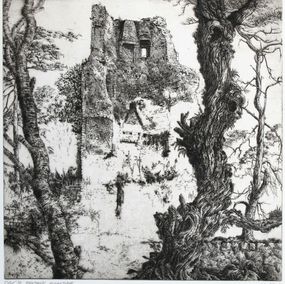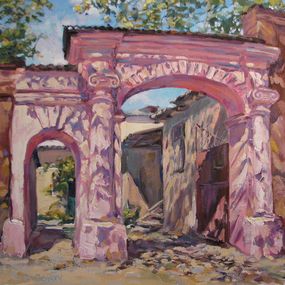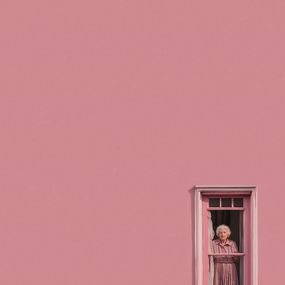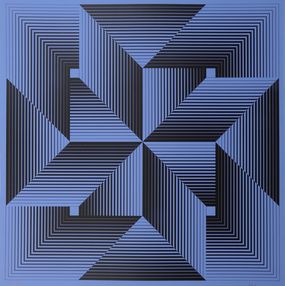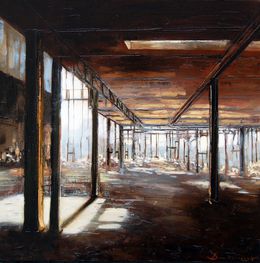
Architecture Painting for Sale
For a long time in the background of academic painting, architecture gradually found a place of choice in the interest of artists. Painters, before photographers, gave an account of what they saw during their travels, and in particular of architecture, from the 17th century onwards when the Grand Tour became fashionable. Others imagined the passage of time, like Hubert Robert who, fascinated by Greco-Roman antiquities, painted his "Imaginary View of the Louvre" in ruins in 1796. In the 19th century, schools of architecture developed, and with them new art projects. Even today, contemporary artists play with the different aspects of architecture and the way it evolves with time. We find then artists like Thierry Van Quickenborne, who plays on the effects of time and nature on architecture with flooded or deserted buildings. Or Soon and his buildings with a childish, almost naive influence. Or even Séverine Dietrich, whose urban landscapes reconcile traditional painting with architectural models!
Discover now a selection of architectural paintings prepared just for you by our experts!
Save your search and find it in your favorites
Save your search to find it quickly
Saved search
Your search is accessible from the favorites tab > My favorite searches
Unsaved search
A problem occurred




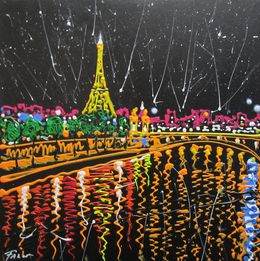
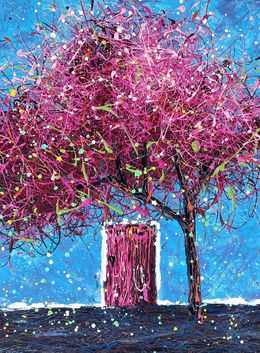
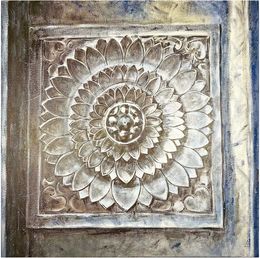
Beautiful temple lotus.
AreiRa
Painting - 50 x 50 x 2 cm Painting - 19.7 x 19.7 x 0.8 inch
CHF 1,074
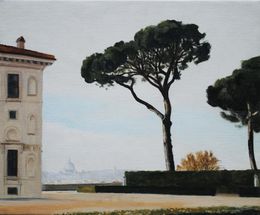
Terrace, Villa Medici II
Philippe Pradalié
Painting - 38 x 46 x 3 cm Painting - 15 x 18.1 x 1.2 inch
Sold

The Temple of Hercules
Philippe Pradalié
Painting - 100 x 81 x 3 cm Painting - 39.4 x 31.9 x 1.2 inch
Sold

The Pyramid of Caius Cestius
Philippe Pradalié
Painting - 89 x 130 x 3 cm Painting - 35 x 51.2 x 1.2 inch
Sold

Via Santa Sabina
Philippe Pradalié
Painting - 97 x 130 x 3 cm Painting - 38.2 x 51.2 x 1.2 inch
Sold
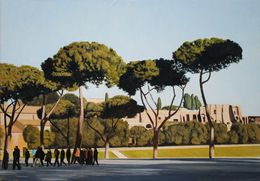
Group, Circo Massimo
Philippe Pradalié
Painting - 114 x 162 x 3 cm Painting - 44.9 x 63.8 x 1.2 inch
Sold

Thunderstorm, Villa Medici
Philippe Pradalié
Painting - 130 x 162 x 3 cm Painting - 51.2 x 63.8 x 1.2 inch
Sold
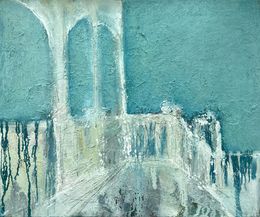
Morning Mist
Zakhar Shevchuk
Painting - 50 x 60 x 1.5 cm Painting - 19.7 x 23.6 x 0.6 inch
CHF 1,270

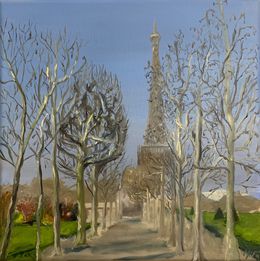
La Grande Dame (Vue 7, vue du Champs de Mars)
Marie France Garrigues
Painting - 30 x 30 x 2 cm Painting - 11.8 x 11.8 x 0.8 inch
CHF 342

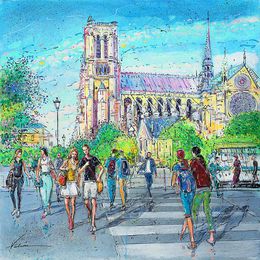
Été à Notre-Dame
Raluca Vulcan
Painting - 100 x 100 x 2 cm Painting - 39.4 x 39.4 x 0.8 inch
CHF 2,930
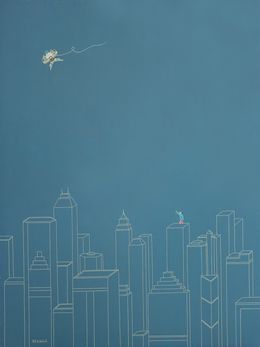

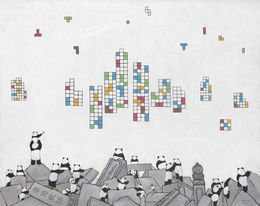

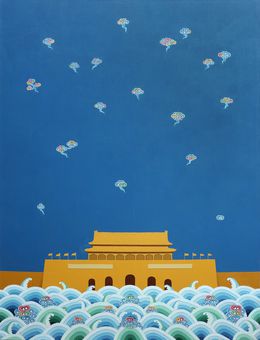

Le Mont Saint-Michel
Raluca Vulcan
Painting - 89 x 116 x 2 cm Painting - 35 x 45.7 x 0.8 inch
CHF 3,418
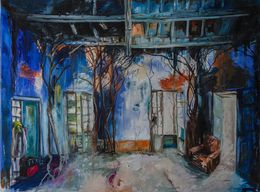
La maison bleue 2
Jean-Pierre Brissart
Painting - 60 x 80 x 3 cm Painting - 23.6 x 31.5 x 1.2 inch
CHF 576
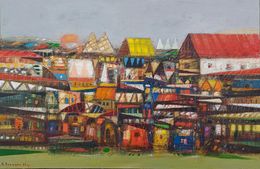
The Festival Village
Aram Sevoyan
Painting - 40 x 60 x 2 cm Painting - 15.7 x 23.6 x 0.8 inch
CHF 792
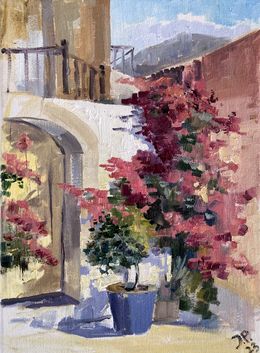
Blooming Bougainvillea in Old Cyprus village
July Kinart (Prykina)
Painting - 35 x 25 x 2 cm Painting - 13.8 x 9.8 x 0.8 inch
CHF 488
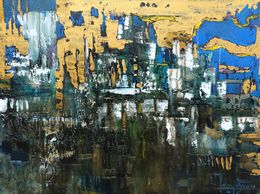
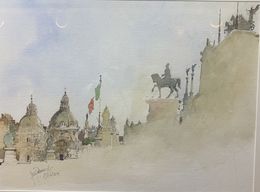
Piazza venezia Roma
Maciej Zaborowski
Painting - 47 x 59 x 1 cm Painting - 18.5 x 23.2 x 0.4 inch
CHF 1,953
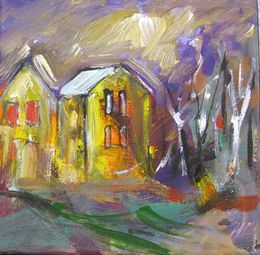

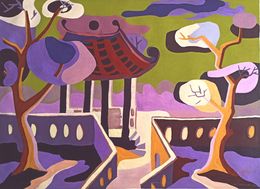
Afternoon sun on ancient architecture
Quynh Elisa Hoang
Painting - 72.9 x 100.1 x 3 cm Painting - 28.7 x 39.4 x 1.2 inch
CHF 2,024
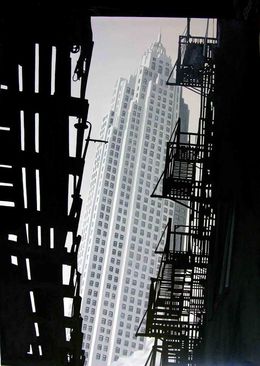

La Bibliothèque Rouge
ShuJie Wang
Painting - 70 x 50 x 2 cm Painting - 27.6 x 19.7 x 0.8 inch
CHF 879
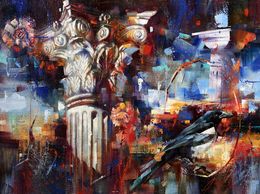
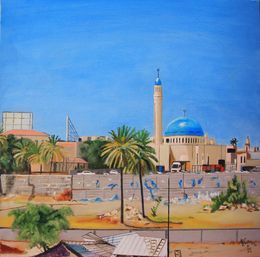
N° 1244 Jéricho, Jéricho !
R. Cavalié
Painting - 50 x 50 x 2 cm Painting - 19.7 x 19.7 x 0.8 inch
CHF 508

Snow-covered village
Alexander Shandor
Painting - 55 x 65 x 3 cm Painting - 21.7 x 25.6 x 1.2 inch
CHF 1,760

N°1242 Bet She’an. Scythopolis 1.
R. Cavalié
Painting - 38 x 55 x 2 cm Painting - 15 x 21.7 x 0.8 inch
CHF 527
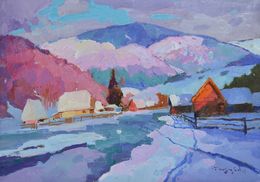

N° 1234 Saint-Jean d'acre 1
R. Cavalié
Painting - 46 x 33 x 2 cm Painting - 18.1 x 13 x 0.8 inch
CHF 488

N° 1232 Césarée, Cesarea
R. Cavalié
Painting - 46 x 55 x 2 cm Painting - 18.1 x 21.7 x 0.8 inch
CHF 527


N° 1220 Talmont. Eglise Sainte Radegonde.
R. Cavalié
Painting - 50 x 65 x 2 cm Painting - 19.7 x 25.6 x 0.8 inch
CHF 586

N° 1197. Entracte. Jardinière 3.
R. Cavalié
Painting - 46 x 61 x 2 cm Painting - 18.1 x 24 x 0.8 inch
CHF 537

N° 1193 Rochefort. Au musée de...
R. Cavalié
Painting - 81 x 54 x 2 cm Painting - 31.9 x 21.3 x 0.8 inch
CHF 781

N° 1190 Aix. La maison de rêve
R. Cavalié
Painting - 38 x 55 x 2 cm Painting - 15 x 21.7 x 0.8 inch
CHF 488
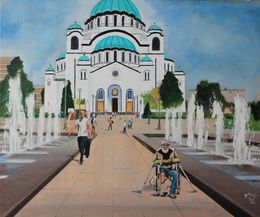
N° 1117 Belgrade 14. Eglise orthodoxe de Saint-Sava A
R. Cavalié
Painting - 54 x 65 x 2 cm Painting - 21.3 x 25.6 x 0.8 inch
CHF 488

N° 1105 Belgrade 2. Kafeterija Magazin. A
R. Cavalié
Painting - 73 x 60 x 2 cm Painting - 28.7 x 23.6 x 0.8 inch
CHF 566
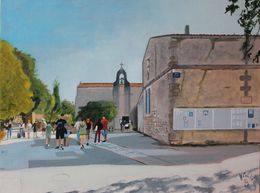
N° 1181 Ile d'Aix. Eglise abbatiale. Place de Verdun.
R. Cavalié
Painting - 46 x 61 x 2 cm Painting - 18.1 x 24 x 0.8 inch
CHF 527


N° 1096 Prague 1. Place de la Vieille Ville (est).
R. Cavalié
Painting - 65 x 54 x 2 cm Painting - 25.6 x 21.3 x 0.8 inch
CHF 488
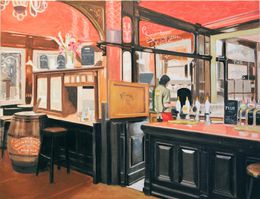
N° 1044 The Argyll Arms 7
R. Cavalié
Painting - 50 x 65 x 2 cm Painting - 19.7 x 25.6 x 0.8 inch
CHF 488
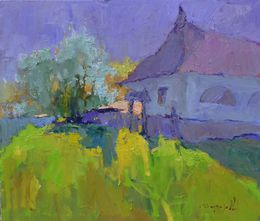
Zatysyanskyy Museum of Regional Studies
Alexander Shandor
Painting - 55 x 60 x 2 cm Painting - 21.7 x 23.6 x 0.8 inch
CHF 1,232

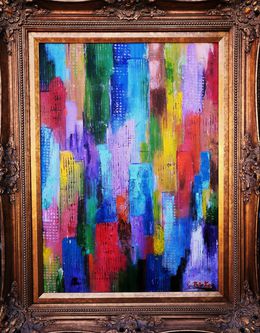

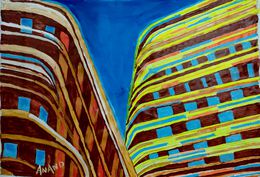
Aesthetic Beauty
Anand Manchiraju
Painting - 76.2 x 101.6 x 0.3 cm Painting - 30 x 40 x 0.1 inch
CHF 5,280
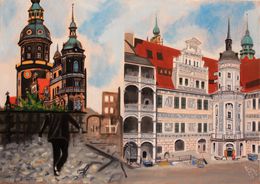
N° 1088 Dresde 2. Noir, blanche et travaux.
R. Cavalié
Painting - 46 x 55 x 2 cm Painting - 18.1 x 21.7 x 0.8 inch
CHF 488

N° 1091 Dresde 5. Carpe diem.
R. Cavalié
Painting - 65 x 54 x 2 cm Painting - 25.6 x 21.3 x 0.8 inch
CHF 488

N° 1078 Vienne. Improvisation sur St Charles Borromée.
R. Cavalié
Painting - 65 x 54 x 2 cm Painting - 25.6 x 21.3 x 0.8 inch
CHF 488

N° 110 Baalbek. L'emmuré.
R. Cavalié
Painting - 65 x 50 x 2 cm Painting - 25.6 x 19.7 x 0.8 inch
CHF 488

N° 833 Chessine 1. Le Sarto
R. Cavalié
Painting - 50 x 73 x 2 cm Painting - 19.7 x 28.7 x 0.8 inch
CHF 586

N° 834 Rojus. La maison condamnée
R. Cavalié
Painting - 81 x 65 cm Painting - 31.9 x 25.6 inch
CHF 781

N° 493 De l'esplanade de la Maison de Boigne.
R. Cavalié
Painting - 54 x 73 x 2 cm Painting - 21.3 x 28.7 x 0.8 inch
CHF 586
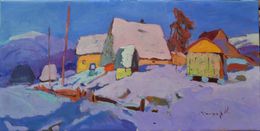
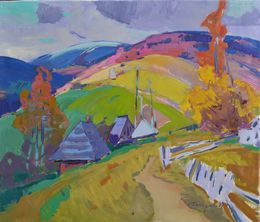

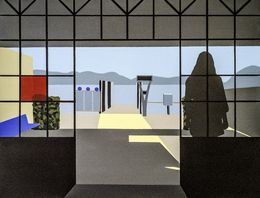

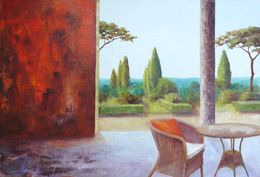
Terrasse italienne
Laurelle Bessé
Painting - 50 x 73 x 2.5 cm Painting - 19.7 x 28.7 x 1 inch
CHF 1,465

Sugar Bowk
Tinatin Chkhikvishvili
Painting - 21 x 26 x 2 cm Painting - 8.3 x 10.2 x 0.8 inch
CHF 586

Cobalt Room
Tinatin Chkhikvishvili
Painting - 24 x 18 x 2 cm Painting - 9.4 x 7.1 x 0.8 inch
CHF 586
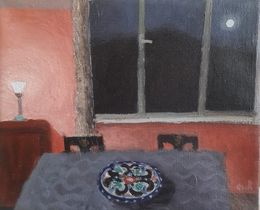
Pink Room
Tinatin Chkhikvishvili
Painting - 21.5 x 26 x 2 cm Painting - 8.5 x 10.2 x 0.8 inch
CHF 586
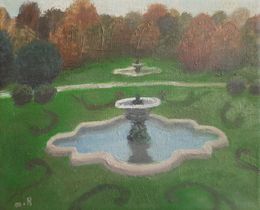
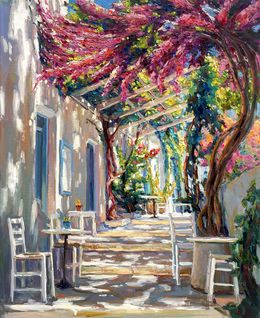
Courtyard in Greece
Evgeny Chernyakovsky
Painting - 90 x 70 x 2 cm Painting - 35.4 x 27.6 x 0.8 inch
CHF 1,408 CHF 986
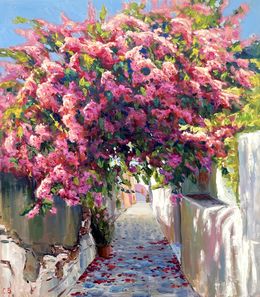
Flower bush
Evgeny Chernyakovsky
Painting - 90 x 80 x 2 cm Painting - 35.4 x 31.5 x 0.8 inch
CHF 1,936
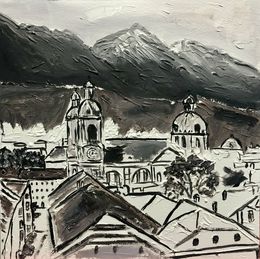
City Innsbruck, Austria
Nataliia Krykun
Painting - 30 x 30 cm Painting - 11.8 x 11.8 inch
CHF 664 CHF 332

Croatian Village
Dondi Schwartz
Painting - 70 x 110 x 3 cm Painting - 27.6 x 43.3 x 1.2 inch
CHF 1,367

Holy Trinity
Muraz Martirosyan
Painting - 55 x 55 x 2 cm Painting - 21.7 x 21.7 x 0.8 inch
CHF 1,172

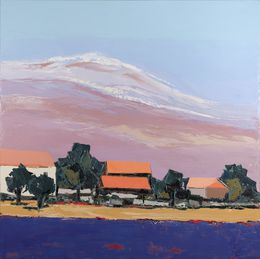
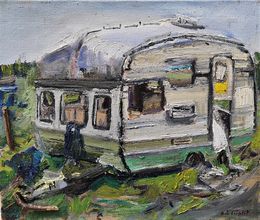
Caravane abandonnée sur l'île de Skye
Bertrand De Cointet
Painting - 54 x 65 x 2 cm Painting - 21.3 x 25.6 x 0.8 inch
CHF 488
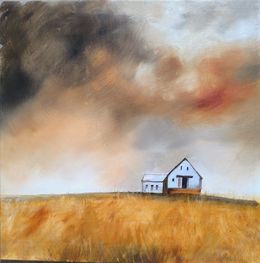
The sky begins behind the house
Elina Bilous
Painting - 65 x 67 x 2 cm Painting - 25.6 x 26.4 x 0.8 inch
CHF 559

Osmose Bande De 1 N2
Paul Gallaud
Painting - 60 x 60 x 3 cm Painting - 23.6 x 23.6 x 1.2 inch
CHF 1,758


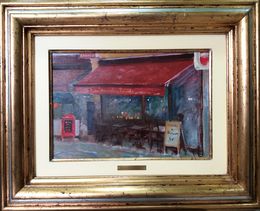
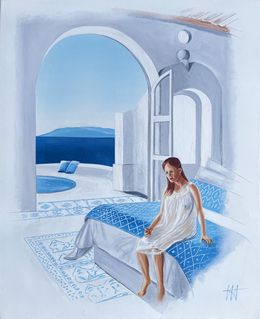
Burn-out au paradis.
Jean-Jacques Venturini
Painting - 60 x 51 x 4 cm Painting - 23.6 x 20.1 x 1.6 inch
CHF 781

Le petit village
Joseph Piermatteo
Painting - 50 x 61 x 2 cm Painting - 19.7 x 24 x 0.8 inch
CHF 1,221

National Theatre & Reflection
Marion Sagon
Painting - 80 x 80 x 3 cm Painting - 31.5 x 31.5 x 1.2 inch
CHF 2,832
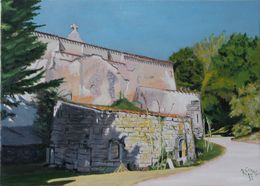
N° 1183 Ile d'Aix. Façade Nord de l'église abbatiale.
R. Cavalié
Painting - 33 x 46 x 2 cm Painting - 13 x 18.1 x 0.8 inch
CHF 439

Silence and Calmness
Alexander Shandor
Painting - 85 x 110 x 2 cm Painting - 33.5 x 43.3 x 0.8 inch
CHF 6,160

N° 1166 Rochefort. Allée Paul Guimard.
R. Cavalié
Painting - 38 x 55 x 2 cm Painting - 15 x 21.7 x 0.8 inch
CHF 410
